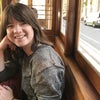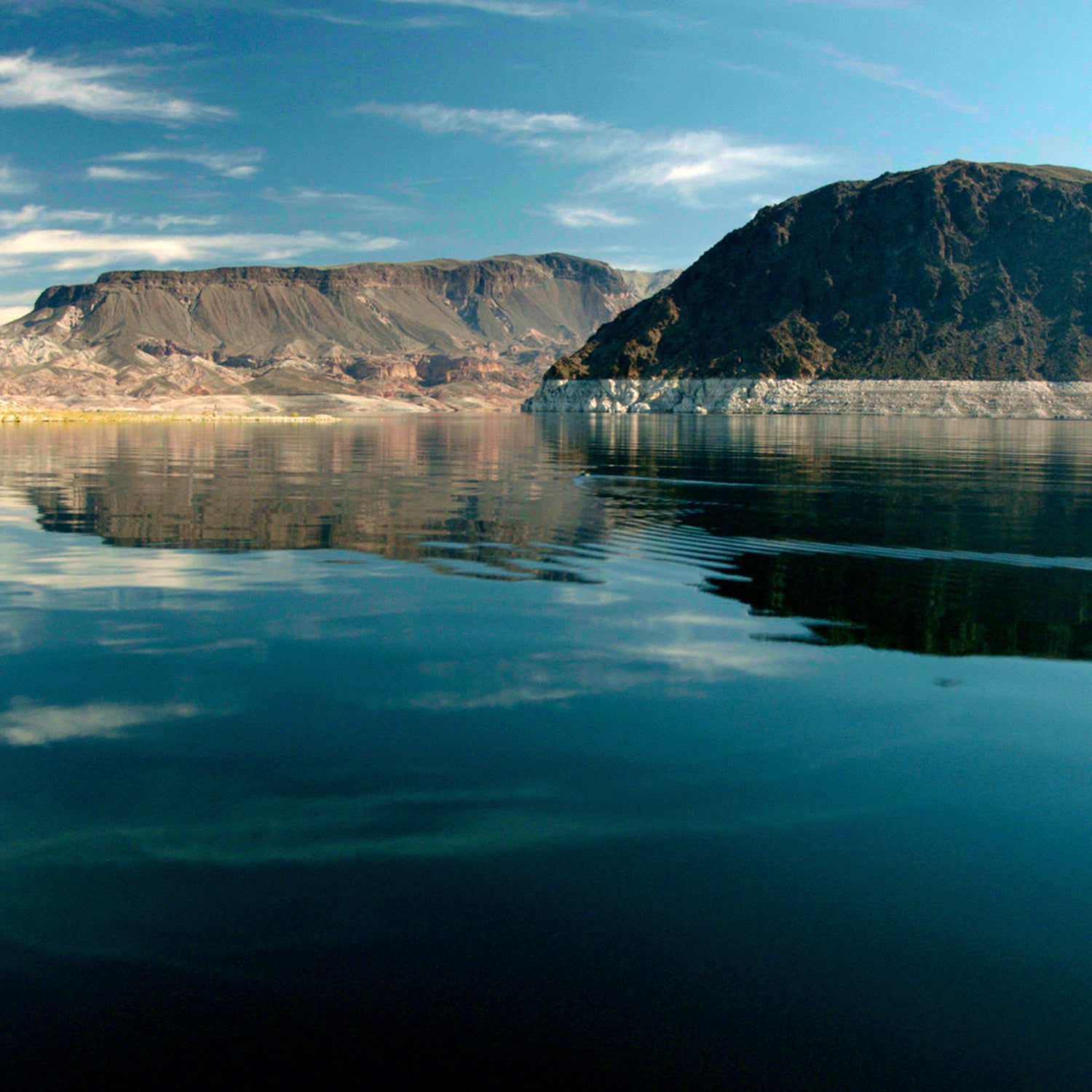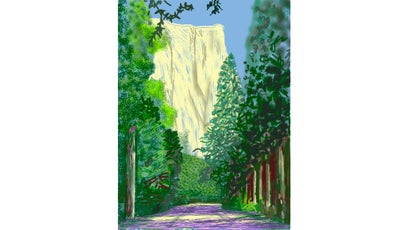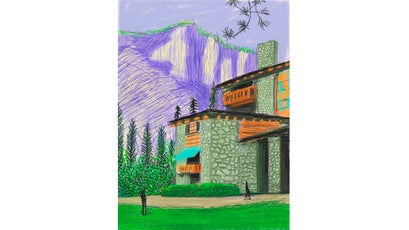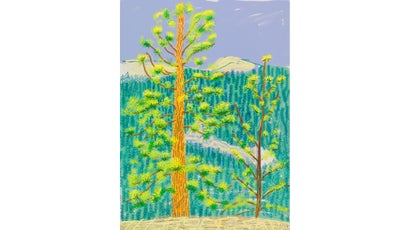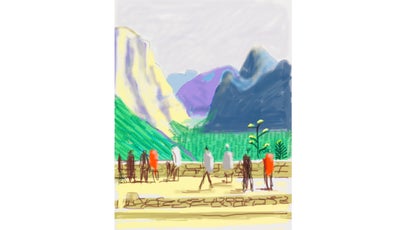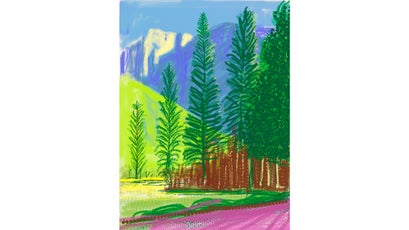The Web can be a cluttered place, but we're here to make it better. Every week, we'll pick only the best stuff and give you the rundown on what you should be reading, watching, listening to, and then some. Leading the charge in our first installment is an ambitious Colorado River documentary that sprung from an equally ambitious reporting series.
Television
‘Killing the Colorado,’ Continued
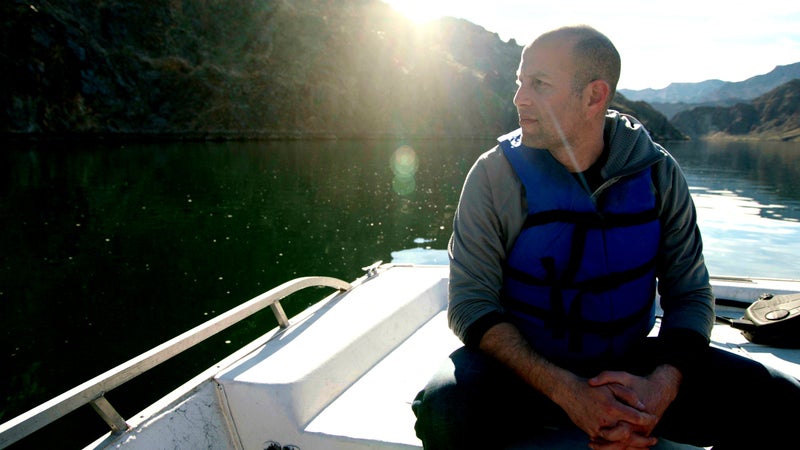
First, read ProPublica reporter Abrahm Lustgarten's award-winning series, “,” a deep dive on the human factors that are drying out the critically important river. Then, watch the Discovery Channel's documentary of the same name, based off Lustgarten's series and premiering August 5. In three mini-documentaries, acclaimed directors meet those affected by the water crisis in the West, focusing on the issues of agriculture, water trading, and dams.
Still worried? (You should be!) We asked Lustgarten and Oscar-winning director (who directed “Water for Sale” in Killing the Colorado with Susan Raymond) what to read, watch, and visit as the story continues.
From Abrahm Lustgarten:
- “The one book that has stood for 30-odd years as the bible of western water issues is , by Marc Reisner. It's as important today as it was in 1985.”
- “A colleague and former excellent water reporter in New Mexico, , has a forthcoming book that promises to be among the best, because I know he is one of the best on the issue. It’s called Water Is for Fighting.”
- “If someone really wants to go see for themselves, water-issue tourism, say—then I’d jump in a rental car in Palm Springs and go drive out past the Salton Sea and through the farmland of the Imperial Valley. Drive down the dirt roads between fields, they are all public. The scene, the water use, its excesses, speak for themselves. From there head east along the All-American Canal to the Colorado River, and drive north on 99 to Las Vegas and Lake Mead. Your education about the role of distribution of this water in this landscape will be complete.”
From Alan Raymond:
- “For another overview on the Colorado River’s severe problems, is excellent.”
- “The New York Times as featured in our section of Killing The Colorado.”
- “From the investigative website Truthout, an about the privatization ownership of water.”
- “Lastly, an important book on the issue of water scarcity in the western states: by Lynn Ingram & Frances Malamud-Roam.”
Art
A Pop Artist's Take on Yosemite
You must be familiar with David Hockney. The hugely influential British artist has created art of all kinds, from portraits to stage designs, in styles of all kinds, most recently including iPad brushstrokes. His are on display at the Los Angeles Louver Gallery through September 2. Here's a sampling:
Film
Short: Making a Living in Women's Soccer
The short film, “An Equal Playing Field,” is a primer on the challenges of making it in underfunded women's sports, and was one of many excellent picks at the this past weekend. Pair with Abby Wambach's recent words on the —this won't be the last you hear of it.
In-Depth: A Running Nerd's Fever Dream
It's true—the streets weren't always littered with joggers. The new documentary, Free to Run, chronicles the rise of the sport as a cultural phenomenon. Our admittedly running-crazy writer loved it.
Weekend Reading from ���ϳԹ���
An Awkward Dinner with Ed Abbey
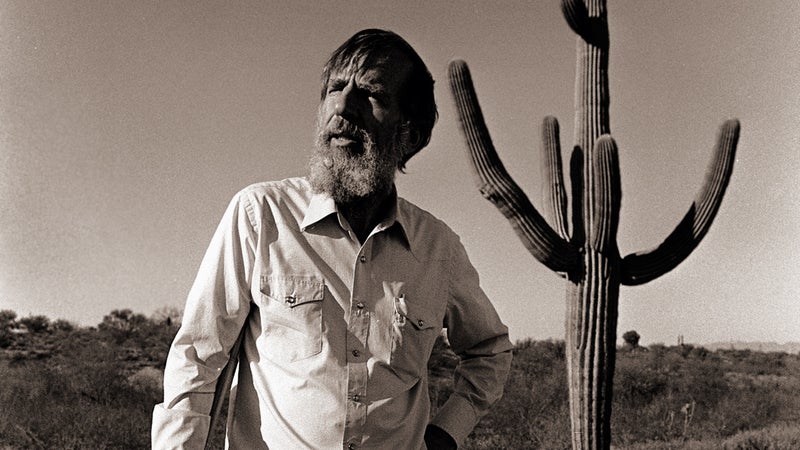
Terry McDonell, prolific editor of magazines (including ���ϳԹ���), remembers Abbey as a man who cared little for fawning and cared a lot for those he trusted.
Ed Abbey didn’t have a phone but was easy to recruit, once I tracked down his post office box in Oracle, Arizona. His novel The Monkey Wrench Gang was then the defining document for the wild-ass splinters of the environmental movement as it turned belligerent—birthing the militant Earth First! and Sea Shepherd. More important to me, his first nonfiction book, Desert Solitaire, read like observational sorcery, which is the kind of language Ed would make fun of but it’s what I told him when he called me collect after getting my postcard offering whatever assignment might interest him.
“The last thing I need is another editor,” he said. “But I suppose I could use the money.”
An excerpt from McDonell's new book, The Accidental Life.
Weekend Reading from Elsewhere
Everything You Wanted to Know About the Internet on Everest
TL;DR it's complicated, but it works. That said, . We want to know: What exactly is everyone Googling at Base Camp?
Exactly 20 years [after the 1996 disaster on Everest], [my guide] Bishnu and I crested a ridge and walked into a clearing strewn with rock monuments and Tibetan prayer flags—a memorial to the hundreds of mountaineers claimed by Everest. While we rested, a group of trekkers came over the ridge, their necks laden with bulky DSLR cameras. They snapped selfies with their iPhones and wondered aloud which Instagram filters would best capture the mood of the place.
I began to reflexively bemoan our unwillingness to disconnect. That we couldn’t leave the digital world even in one of the most remote regions on the planet felt suffocating, and somehow made the Himalayan graveyard I was sitting in feel less real. But as a gentle snow began to fall—just as Bishnu’s app had predicted—I couldn’t help but wonder if Fischer and his colleagues had access to today’s tech in 1996, would they have survived?
One Last Thing
Ben Moon Has a New Dog
There's a good chance you've already cried over Denali, Moon's touching tribute to his late dog. (If you haven't, now's the time to do so.) When he posted a photo of his new puppy to Instagram, we readied ourselves to get emotional all over again—just, with fewer tears this time.

